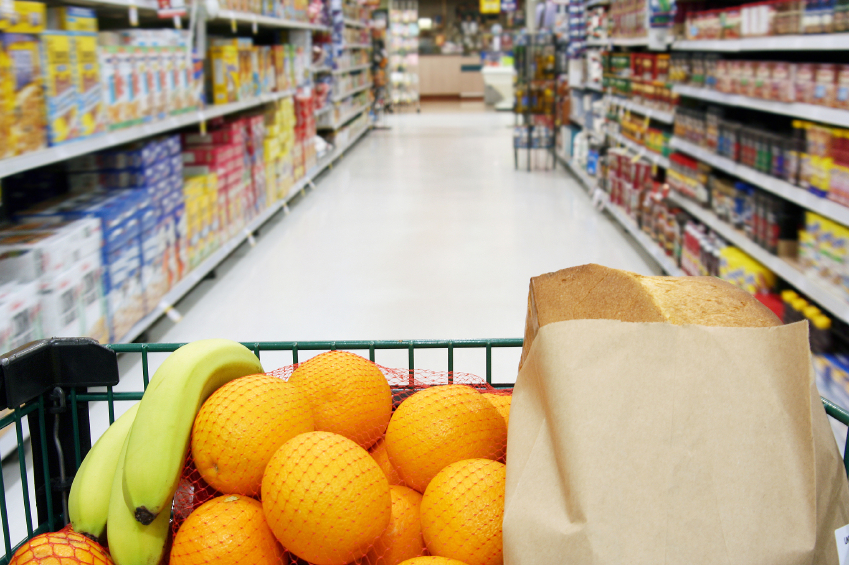All2Stand
Tuesday, January 28, 2014
One of the most inspiring stories of the past year has to be that of Malala Yousafzai. You'll remember that she's the young teen from a Taliban ruled village in Pakistan who has spoken out strongly for her right and the right of other girls to an education. She was seen as such a threat that she was targeted by the Taliban for assassination and was shot a year ago, but not killed. After recovering from her injuries, she has continued her campaign on an international level. She became, this year, the youngest person ever to be nominated for the Nobel Peace Prize. (You can read more about her here.)
Her courage is a sight to behold. She could be a poster child for the ezer! (See my first post for a word about ezers.)
But I'd like to consider a different angle to her story. Consider this video of a recent interview Malala had with Jon Stewart. As you do, listen for her references to her father.There are only a couple.
Why do I ask you to do this? Because ezers are not "I am woman, hear me roar" types. As writer Caroline Custis James explains, God created men and women to work together. She calls this special relationship the "blessed alliance." It is a relationship that breeds interdependence, not dependence or independence; it is a relationship of great mutual respect; it is a relationship confident in each person's God-given strength and it makes room for that strength. The "blessed alliance" can exist in any male/female relationship: sister/brother, husband/wife, father/daughter.
So what does this have to do with Malala? Notice in the clip, Jon Stewart asks her what gave her the courage to speak out even when her life was being threatened. She says, "My father was a great encouragement for me. . . ."
Do you hear that? Her father was her encouragement. He was also a spokesperson for education. But amazingly when it came to his young daughter, he did not shield her, did not inhibit her from championing a dangerous cause. He saw her strength and he encouraged her. (See the first link above for more on his stance.) The result is inspiring. How much more effective is her voice than his! She says, "I raised my voice on every platform that I could." Because of her age and her vulnerability, her platforms are many and she can speak all the more powerfully against the oppression of the Taliban. Because of the "blessed alliance" between Malala and her father, her voice was not silenced, but was encouraged and supported.
Monday, September 9, 2013
Kim Hall Shows Us Our Blind Spot; Hugh McNally Offers an Antidote
When I checked facebook over the weekend, I found two posts
side by side that epitomize the struggle we Christians are having with gender.
The first included a link to an article by the Rev. Dr. Hugh McNally titled Tertullian's Ghost. In it this
retired Canadian pastor and missionary graciously and articulately advocates
for biblical gender equality. It’s perhaps a surprising stance for someone of his
position and generation to take. I found it refreshing and encouraging.

Directly under this post was another linking to a piece by
Kim Hall at her blog, Given Breath. In it Hall, also graciously and
articulately, speaks to teen girls who post provocative pictures of themselves
online. As the mother of three teen sons and a young daughter, she is
understandably concerned. In her words:
That post doesn’t
reflect who you are at all! We think you are lovely and interesting, and
usually very smart. But, we had to cringe and wonder what you were trying to
do? Who are you trying to reach? What are you trying to say?
And
now – big bummer – we have to block your posts. Because, the reason we have
these (sometimes awkward) family conversations around the table is that we care
about our sons, just as we know your parents care
about you.
Major points to Hall for addressing what is likely an
epidemic of such gratuitous postings. And points for having those sometimes
awkward family discussions!
But there’s a problem.

image credit: wikimedia commons http://commons.wikimedia.org/wiki/File:Sand_castle,_Cannon_Beach.jpg
This is version 2 of her post. In version 1,
Hall included pictures of her sons at the beach in clothing (or lack of) and
poses that more than a few readers found objectionable. They were not (imo) provocative, but the guys were bare-chested and posing to their strengths, shall we say. Hall was bothered enough by her readers' responses to remove the offending pictures.
This is important. Hall is not alone in her valid concerns,
nor in the blind spot that provoked her readers objections to the pictures she posted
of her sons. What I'm concerned with are the strong messages that blind spot sends. This is what I heard:
- It's natural and harmless for boys to joke around and show off their prowess, but it's dangerous and even shameful for girls to.
- The reason for this difference is that guys are "hardwired" for sex and girls somehow aren't.
- Guys can pose and post pictures without a second thought, but girls are responsible for the way they represent themselves and also for what ever reactions these representations elicit.
“Did you know that once a male sees you in a state of undress,” Hall
says, “he can’t quickly un-see it? You don’t want our boys to only think of you only in this sexual way,
do you?" (emphasis mine)

image credit: cruiselawnews.com http://www.cruiselawnews.com/2009/11/articles/social-media-1/miami-herald-see-no-evil-hear-no-evil-speak-no-evil/
The way Hall’s sons, and anyone else for that matter, see these teens is the responsibility of the viewer. Period. Is “un-seeing” difficult? Yes. Are the girls responsible for initiating the difficulty? Yes. But what Hall’s sons, and any others, do with these images from the moment they view them is very much their own responsibility. Self control is a fruit of the spirit for good reason. Why we behave as if it doesn't exist or is somehow beyond reach when males become titillated is a huge blind spot. (See a related article at CBE's blog, the Scroll)
I love that Hall encourages the positive attributes of the girls she addresses.
I love that Hall encourages the positive attributes of the girls she addresses.
"We enjoy seeing things through your unique and
colorful lens – you are funny,
insightful, and often very, wise," she writes.
But do we provide a place for that insight and wisdom in our homes and
churches? I wonder what the ratio of the
signals we send girls is. How many “We need your ideas;” “We value your initiative;”
“We trust your judgment;” statements compare to how many “Remember the dress code;”
“Cover up!" “Don’t make your brother stumble;” statements.
If the only power we allow our girls is their sexual power, we shouldn't wonder when they choose to use it.
If the only power we allow our girls is their sexual power, we shouldn't wonder when they choose to use it.
This brings me back to the post that appeared immediately before Halls
on my facebook page. McNally explains why the church should be a place where
people can exercise their many gifts regardless of gender. The reason is an
eternal one:
" If not for the
ministry of a woman, I would not have surrendered my life to Christ sixty-five
years ago. How many people could the church reach if it supported the full
participation of women!"
Will teens struggle sexually? Sure. Is that difficult
in our increasingly sexualized culture? Absolutely! But all this argues strongly
for rather than against making a
place in our churches for our girls to contribute, to lead, to find a place for
their “funny, insightful and often very, wise” selves. Let's give them space and encouragement to do that. Maybe then they'll have less time and inclination to seek negative attention.

image credit: R. W. Benwick http://blog.rwbenwick.com/2010/08/leadership-muscles-tone-up/
Sunday, August 25, 2013
Communicating Value
It happened again, and I had to smile. It often happens when I'm with my daughter. She and I had met in Atlanta about a week ago to shop, hit a museum, and just hang out together. It was no small effort, her driving from Alabama and me from South Carolina, in a huge rainstorm to boot. But it was worth every inconvenience. These mother-daughter times are rare and precious.
Still, I had to smile. It happened as we stood at a kiosk at Atlantic Station looking for a place to grab dinner before heading our separate ways. The security guard sidled up to us, asking if we needed any help. When we explained what we were looking for, he offered recommendations in that rather endearing way men have when they're taking advantage of their official capacity to do some mild flirting. If you know my daughter, I don't have to tell you that the guy was directing every bit of this helpful information at her. And why not? She's beautiful, vivacious, and graciously patient at moments like this.
It reminded me of the time she and I flew to Indiana for college auditions about ten years ago. I've never had so many airport personnel opening doors and even offering (I do not lie) to carry bags for us. Ah, the perks of beauty!

And that got me thinking about the subtle ways we communicate value to people, especially (as in this situation) to strangers.

So I have a video clip you gotta watch. The clip demonstrates how we equate beauty with value, or more to the point, the way we devalue people based on the most superficial criteria. It's of actor Dustin Hoffman discussing his title role in the movie Tootsie, a movie in which he plays an actor passing as a woman in order to get work. Speaking of his character, he says,
Still, I had to smile. It happened as we stood at a kiosk at Atlantic Station looking for a place to grab dinner before heading our separate ways. The security guard sidled up to us, asking if we needed any help. When we explained what we were looking for, he offered recommendations in that rather endearing way men have when they're taking advantage of their official capacity to do some mild flirting. If you know my daughter, I don't have to tell you that the guy was directing every bit of this helpful information at her. And why not? She's beautiful, vivacious, and graciously patient at moments like this.
It reminded me of the time she and I flew to Indiana for college auditions about ten years ago. I've never had so many airport personnel opening doors and even offering (I do not lie) to carry bags for us. Ah, the perks of beauty!

And that got me thinking about the subtle ways we communicate value to people, especially (as in this situation) to strangers.

So I have a video clip you gotta watch. The clip demonstrates how we equate beauty with value, or more to the point, the way we devalue people based on the most superficial criteria. It's of actor Dustin Hoffman discussing his title role in the movie Tootsie, a movie in which he plays an actor passing as a woman in order to get work. Speaking of his character, he says,
"I think I'm an interesting woman, when I look at myself on screen, and I know that if I met myself at a party, I would never talk to that character, because she doesn't fulfill physically the demands that we're brought up to think women have to have. . . ."Take a look. Let me know what you think. How much does beauty (or wealth, or status) influence not only who we flirt with at the kiosk, but who we actually end up knowing. Can we retrain ourselves to communicate value to every person we encounter? How do we do that?
Friday, August 2, 2013
Arrogance, Envy, and The Prodigal Son(s)

image form ecmreviews.com
So we talked last time about arrogance and envy and how
people pretty much swing between these two positions depending on how they see
others or, more often, how they assume others see them. A healthier way,
though, is to view others as inherently equal in value and as having important
qualities in common with us despite external cues that seem to indicate
otherwise. 
image from lifeprint.com
It’s interesting to think of Christ in this light. He was
neither intimidated by the religious rulers of his day nor indifferent to the
most menial member of the community. He was completely himself whether talking
with Samaritan women, the religious elite, or lepers.
The story of the prodigal son resonates here. As you’ll recall, in that story a father had
two sons. The younger one demanded his inheritance from his father and left to
spend it on drugs, sex, and rock and roll. (I paraphrase.) One day he wakes in
a back alley with used syringes scattered about and is faced with the fact that
both his fortune and his friends are long gone. Having hit the proverbial rock
bottom, he accepts his failure and heads home. Maybe the old man will allow him
to live in the gardener’s cottage.

image from blackrainbows11.deviantart.com
Then the most shocking thing happens. His father welcomes him, embracing him and forgiving everything. He has a designer wardrobe made ready and a new Mercedes appears to whisk him away to a grand party already in progress at their club.

image from hypebeast.com
The older brother knows nothing of this. But at the end of another 12 hour work day, he checks his phone to find dozens of tweets and texts from business associates as well as family members. His kid brother has not only returned, but everyone they know is already celebrating. This is utterly shocking, outrageous! What could his father possibly be thinking? Honoring this spoiled punk! And what about him? Hadn’t he remained with his father and helped to run the family business? Hadn’t he taken all the responsibility of work that by rights his brother should have shared?

image from 123rf.com
Ah, the shifting from arrogant to envious and back again is dizzying. The younger brother arrogantly takes his “deserved” inheritance but returns humbled, envious (that is, feeling unworthy). The older brother seems confident of his superior position, arrogant. He is after all the good brother. Yet his father’s ridiculously embarrassing reinstatement of his kid brother knocks him to envy. “You’re throwing a party for him! You never threw one for me!”
Then comes the great equalizer. When the father embraces the
younger son and reminds the older son, “All that I have is yours,” he is in
effect saying, “Your status never changes with me, ever.” Imagine that. A
father for whom our value never wavers, no matter what.


image from foodstoragereviewer.com

Yet the greatest gift is not even these things. The greatest thing the
father has to give is relationship. That is what the younger brother returns
to. That is what the older brother has had access to all along. And they both
almost missed it.
Sunday, July 14, 2013
A New Take on Arrogance and Envy
Consider the following scenario.
A woman is on her way to a wedding. She’s running late, and
since she doesn’t want to come down the aisle with the bride, she’s pretty
impatient. She comes up to an intersection and has the green light, except that
a guy in a battered pickup truck with a cracked windshield and one tail light
out is in front of her trying to make a left turn. She’s riding his bumper.
He’s oblivious. So when the light goes yellow, She jerks around him, slams on
the gas and buzzes through the now red light muttering some choice words about
how the DMV is handing out driver’s licenses to idiots these days. Is she being
arrogant? No! She’s in a hurry, and some lame-brained, irresponsible driver is
about to make her late.
OK, now the woman arrives at the wedding. She slips into her
seat with a minute or two to spare, and the nasty traffic incident is history.
Everything’s great. The music’s beautiful. The flower girl’s adorable. The
bride and groom are blissfully wed. But as she’s reaching for the punch ladle
at the reception, she hears a familiar voice calling her name. It’s that friend
from high school. (Not just any friend, that
friend, the one who always bested her at, fill in the blank: basketball . .
. GPA . . . boyfriends . . . .) She turns and her friend is drop dead gorgeous.
Her dress is right, her hair is right, her shoes are . . . well, amazing. The
woman reaches down to cover a smudge on her slightly too tight skirt with a
purse that’s all wrong for her outfit (although it seemed fine an hour ago).
She smears a false smile on my face and BAM! Her smug satisfaction is gone. Is
she envious? No. She’s simply confronted with someone she never could measure
up to, someone who’s smarter, prettier, funnier, more successful than her. And
even if her friend is nice and seems genuinely glad to see her, she just can’t
shake that feeling of not-being-good-enough.

image borrowed from Friday Style Icon: Kate Middleton
Now I realize this scenario is familiar to anyone surviving middle school. It just so happens to illustrate a conversation I had recently with someone who said that people (adult people!) typically relate to each other from one of two positions: top-down or bottom-up. That is, we tend to look up from a position of envy, feeling other people are better than we are. Or we look down from a position of arrogance, feeling we’re better than they are. Often we swing back and forth between the two depending upon whom they’re with. The ideal, of course is to see ourselves as true equals – and I’m talking about inherent value here, not particular skills or talents.
Well, I’m guessing you’re like me in that you probably
consider yourself to be pretty democratic. After all, the inherent worth of
every human is core to us as Americans and as Christians. But I did a little experiment.
On a short trip to the grocery, I decided to check out my “position” with the
people I saw there: the 60 something guy parking his red BMW, the bored woman
behind the deli counter with the stained uniform and that homely hair net
thingy, the 30 something mom with the adorable toddler, the too cheery
check-out girl, the guy slouched, smoking by the drink machine, the
octogenarian pulling her car ever so slowly through the cross walk. As I considered each person, I was aware of my
attitude subtly shifting between arrogance and envy. Theoretically, I have a
great value system. We’re all equal! But
relationally, maybe not so much.

Hang on though. Here’s the other part of the experiment.
About half way down my shopping list, somewhere between produce and ethnic
foods, I tried correcting my “position.” The too fat, too skinny, too loud, too
snooty, too ragged, too flawless and me, we’re all equals. I mean totally, at
our core, equal. The change was surprising. How much more human these people
became to me, even when I was only passing them in the aisle, when I
consciously refused to take a bottom-down or top-up attitude toward them! I
found myself wondering what the octogenarian’s life was like 20 or 30 years ago
and if the check out girl liked her job. It was easier to step outside of my
limited viewpoint. I’d never thought of being in competition with total
strangers, but that’s what the whole top-up, bottom-down attitude is. By
refusing to compete, I felt lighter, freer to be myself and eager to empty the
trash bin of those adolescent comparisons.
So maybe you could try this experiment yourself at the mall
or at work or while running Saturday errands. If you do, let me know what you
discover.
Next post, I’ll tell you how this connects to a new insight
I had into a very old parable.
Monday, July 1, 2013
Working On It
This greeting card is sitting in my drawer.
It's been there for years.
I never send it to anyone.
It's for me, my reminder that there are others who find it difficult to let go of things, to say, "Finished!"

It's been there for years.
I never send it to anyone.
It's for me, my reminder that there are others who find it difficult to let go of things, to say, "Finished!"

(The artist, Susan Mrosek, graciously gave me permission to use her image. .
You can find her fun quirky work at Pondering Pool. I'd buy her cards by the box full if I could afford it.)
So many things in my world seem to need to be "longer, rounder, tighter . . . and with a little more red." For instance, there's a blog post I've re-written half a dozen times and still haven't published.
Ah, perfectionism!
Thought I had a handle on that, but this blog, I do believe, is resurrecting it. So here's the deal. I will be writing something at least every two weeks (regardless of how red it isn't) and will provide links to interesting things I'm seeing at least every week. (Not exactly tearing up the blogisphere, I realize, but that's realistic for now.)
Thank you, dear friends, who've been kind enough to check in here. Hope you'll continue to.
On a related note, here's a link to a TED talk by Brene Brown (pronounced Brin-a) that I came across about a year ago. It's mesmerizing! She discusses vulnerability and its necessity in our lives for a host of interesting reasons. Seems an appropriate antidote for perfectionism to me. I have links to this one and to her follow up TED talk at the "Catch This" tab.
Blessings!
S.
Thought I had a handle on that, but this blog, I do believe, is resurrecting it. So here's the deal. I will be writing something at least every two weeks (regardless of how red it isn't) and will provide links to interesting things I'm seeing at least every week. (Not exactly tearing up the blogisphere, I realize, but that's realistic for now.)
Thank you, dear friends, who've been kind enough to check in here. Hope you'll continue to.
On a related note, here's a link to a TED talk by Brene Brown (pronounced Brin-a) that I came across about a year ago. It's mesmerizing! She discusses vulnerability and its necessity in our lives for a host of interesting reasons. Seems an appropriate antidote for perfectionism to me. I have links to this one and to her follow up TED talk at the "Catch This" tab.
Blessings!
S.
Thursday, May 23, 2013
Ezer Rhymes with Razor

And that's where the metaphor ends because a razor is a tool; it cuts; it can be helpful or hurtful; it can bring relief or cause pain, but it's an object. And an ezer is a person, a human being, and not an object. More specifically, an ezer is a woman; any woman and all women are ezers by design. And if you're a woman, and you didn't know this before, then today is a banner day because you get to find out something wonderful about yourself. (Guy, you're welcome to lurk on this one, cause this is good news for you, too.)
Remember when you were a kid and you dressed up like Wonder Woman and you kicked the bad guy in the face and saved the world? Nah, me either. I rode my bike and played house. But pretend for a moment that you dressed up like Wonder Woman, kicked the bad guy in the face and saved the world. Well, guess what? You were being an ezer and you didn't even know it!
But this is the deal. Ezer means Wonder Woman. Well, mostly. I'm pretty sure the crown and wrist thingys are optional (and don't even get me started on the bustier).

But, think about it. You've known for a long time that women are strong. And you've known that they get a whole lot done (albeit many times in the background). But maybe you didn't know that that's exactly how God created you! Not to (only) be stuck in the kitchen with the dishes, but also and often to be a powerful ally ruling alongside your brothers.
I know, that "ruling" thing sounds so . . . so . . . unlady like. Rewind to Genesis I:27 & 28. God created human kind in His image (so cool!), and He created us male and female (also cool, right?) and then He told us, US, to fill the earth and subdue it, rule over it. So the picture here is of a partnership, all parties fully franchised, what Carolyn Custis James calls, the blessed alliance. Think not only Adam and Eve before the fall, but also Esther and Mordecai, Miriam and Aaron, Priscilla and Aquila.
As Mimi Haddad in "Why did God Create Woman" notes:
According to Genesis, the only cloud hanging over Eden was man without woman. "It is not good that the man should be alone, I will make him a helper as a partner" (Gen. 2:18, NRSV). What is the good or strong help that women offer? According to R. David Freedman, the Hebrew word used to describe woman’s help (ezer) arises from two Hebrew roots that mean "to rescue, to save," and "to be strong" (Archaeology Review (9 [1983]: 56-58). Ezer is found twenty-one times in the Old Testament. Of these references, fourteen are used for God and four for military rescue. Here is an example of ezer used for God's rescue of Israel:
I lift up my eyes to the mountains—where does my help come from? My help [ezer] comes from the Lord, the Maker of heaven and earth (Ps. 121:1-2, TNIV).
Do you hear that? We are created to be powerful allies offering strong help, saving help to our brothers and sisters. Now how cool is that!
(Really, let me know. Cool?)
Subscribe to:
Posts (Atom)



